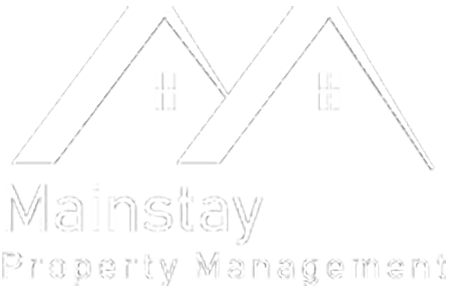Bethesda, MD, is a popular area for real estate investments, particularly in rental properties. With a thriving economy, high housing demand, and an active real estate market, investors can discover great opportunities for passive income through rental properties.

Investing in rental properties with tenants can take time and effort, especially for first-time investors. There are many factors to consider and potential challenges to overcome.
Equally important is thoroughly researching the area’s current rental rates and comparing them to your potential property’s expected rental income. This will provide a clear potential return on investment (ROI) and allow you to make informed decisions about the property’s worthiness.
5 Tips to Buying a Tenant-Occupied Rental Property
Purchasing a rental property is always exciting, but the dynamics shift when tenants are already in place. As a new owner, you’re not just acquiring a building but also stepping into a relationship with existing tenants.
1. Know the Existing Lease Agreements
The first step in this process is thoroughly understanding the existing lease agreements. These contracts will dictate much of your relationship with the tenants, so reviewing them carefully is crucial.
- Review Lease Terms: Start by examining the lease terms, such as the rental amount, lease duration, and any specific clauses that could impact your ownership. For example, are there clauses about subletting, property maintenance, or early termination?
- Rental Payment History: It is important to ensure tenants have paid rent on time. Ask for records that show consistent payments, as this will give you confidence in the tenants’ reliability.
- Security Deposits: Verify that the security deposits have been handled according to state laws. You must ensure that these deposits are correctly transferred to you at closing.
- Check for Special Agreements: Some tenants may have negotiated special agreements with the previous owner, such as reduced rent in exchange for property improvements or responsibilities. Be aware of any such contracts, as you must honor them.
A thorough review of these documents will ensure you are fully aware of your obligations and can avoid unpleasant surprises.
2. Assess the Tenants
Once you understand the lease agreements, it’s time to assess the tenants themselves. A good tenant can be a great asset, while a problematic tenant can cause headaches and potential financial losses. Conducting due diligence on the current tenants is an essential step in the process.
- Review Tenant Payment Histories: A tenant’s payment history indicates reliability. Consistent, on-time payments are a positive sign, while frequent late or missed payments may signal potential issues.
- Current Owner’s Feedback: Speak with the current owner or property manager about the tenants. Ask about their behavior, how they maintain the property, and any issues that have arisen during their tenancy. This can provide valuable insight you won’t find in the lease agreements alone.
- Meet the Tenants: If possible, arrange to meet the tenants before finalizing the purchase. This can give you a feel for who they are and how they might respond to a new landlord. It also offers an opportunity to establish a positive relationship from the outset.
- Maintenance Requests and Complaints: Request copies of any maintenance requests or complaints made by the tenants. This can reveal ongoing issues with the property or tenants who may be particularly demanding or challenging to please.
3. Understand Local Landlord-Tenant Laws
Real estate laws vary widely from state to state and city to city. Bethesda, MD, like many areas, has specific regulations governing the rights of landlords and tenants. Familiarizing yourself with these laws ensures a smooth transition and avoids legal pitfalls.
- Research Maryland’s Tenant Protections: Maryland has tenant protection laws that outline what landlords can and cannot do. For example, there are specific rules regarding notice periods for eviction, rent increases, and entering the property. Make sure you understand these laws to avoid inadvertently violating a tenant’s rights.
- Notice Requirements: As the new landlord, you’ll need to provide proper notice to the tenants about the change in ownership. Maryland law may require you to inform tenants within a certain timeframe and in a specific manner.
- Rent Control: While Maryland doesn’t have statewide rent control, some cities have regulations that could impact your ability to raise rents. Research Bethesda’s local ordinances to ensure you comply with any limitations on rent increases.
- Tenant’s Right to Purchase: In some jurisdictions, tenants have a right of first refusal if their rental property is sold. This means they must be allowed to purchase the property before it’s sold to another buyer. Check if this law applies in Bethesda.
Understanding the legal landscape is essential to protecting your investment and maintaining a positive relationship with your tenants.
4. Plan for the Transition
Once you’ve reviewed the lease agreements, assessed the tenants, and familiarized yourself with the laws, it’s time to plan for the transition. A smooth handover will set the tone for your relationship with the tenants and ensure you start on the right foot.
- Introduction to Tenants: After the sale, send a welcome letter to the tenants introducing yourself. This letter should include your contact information, instructions on how to pay rent, and any changes to the existing procedures. Clear communication is key to avoiding confusion and ensuring a smooth transition.
- Handling Rent Payments: Ensure you communicate any changes to how rent payments should be made. If you’re using a different payment platform or have a new mailing address for checks, provide this information well in advance.
- Transfer of Security Deposits: The security deposits must be transferred from the previous owner to you, and this process should be documented to protect both you and the tenants. Ensure the amounts are correct and comply with Maryland’s security deposit laws.
- Inspection and Maintenance: Consider inspecting the property again shortly after taking ownership. This will give you a baseline understanding of the property’s condition and allow you to address any maintenance issues proactively. Tenants will appreciate your attention to detail, and it sets a standard for property upkeep moving forward.
- Establishing a Relationship: Building a good relationship with your tenants from day one can lead to long-term success. Consider small gestures, such as a welcome gift or offering to address minor maintenance issues immediately, to show your commitment to their well-being.
A little goodwill goes a long way. Investing in a small improvement or offering a rent discount for early payments can help establish trust and goodwill with your tenants.
5. Evaluate the Property’s Investment Potential

Finally, it’s important to evaluate the property’s overall investment potential. While the existing tenants are a vital part of the equation, other factors will determine whether this property is an excellent addition to your portfolio.
- Rental Income vs. Expenses: Compare the rental income with your expected expenses, including mortgage payments, property taxes, insurance, and maintenance costs. Make sure the property will generate a positive cash flow.
- Market Rent Analysis: Research the current rental market in Bethesda to determine if the existing rents align with market rates. Your investment’s profitability could be affected if the current tenants pay below-market rent.
- Property Condition: Assess the condition of the property and any potential repair or renovation costs. A property needing significant repairs might reduce your cash flow in the short term but could offer a higher return in the long term if properly managed.
- Long-Term Investment Goals: Consider how this property fits your long-term investment goals. Are you looking for steady cash flow or hoping to build equity over time? Understanding your goals will help you make the right decisions regarding tenant management and property improvements.
Consider hiring a professional property management company if you’re not local or prefer a hands-off approach. They can handle the day-to-day operations, allowing you to focus on growing your investment portfolio.
Partner with Mainstay Property Management for Seamless Property Ownership
At Mainstay Property Management, we specialize in making property ownership in Bethesda, MD, a hassle-free and profitable experience. Our comprehensive services include:
- Tenant Screening and Placement: We conduct thorough background checks to place reliable tenants in your properties.
- Rent Collection and Financial Reporting: Our efficient rent collection system ensures timely payments, and we provide detailed financial reports for transparency.
- Property Maintenance: We handle all maintenance requests and conduct regular inspections to maintain high standards.
- Legal Compliance: Our team stays informed about Maryland’s rental laws, ensuring your properties are always compliant.
- Market Analysis: We continuously monitor market trends to optimize rental rates and occupancy.
Investing in rental properties can be a lucrative venture when done right. Let Mainstay Property Management be your partner in achieving success as a property investor in Bethesda, MD.
Contact us today to learn more about our services and how we can help you reach your investment goals.

